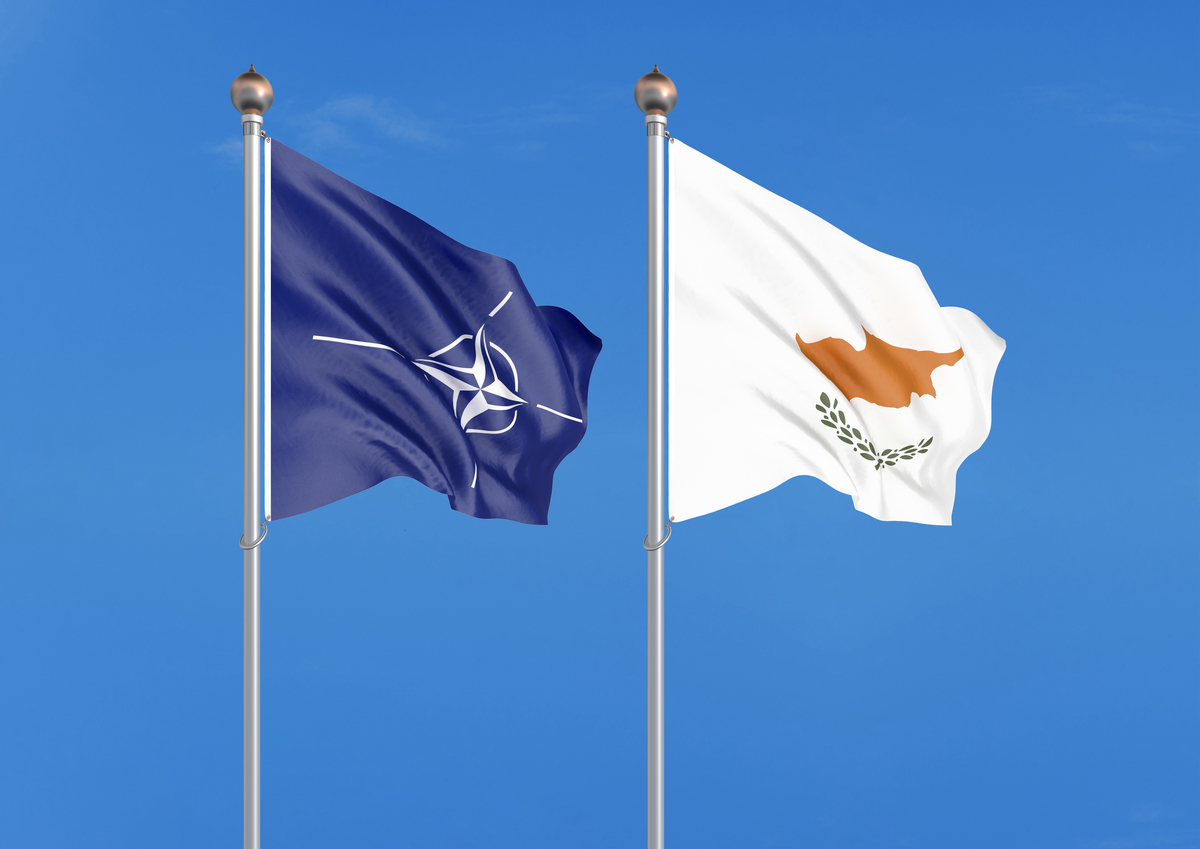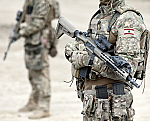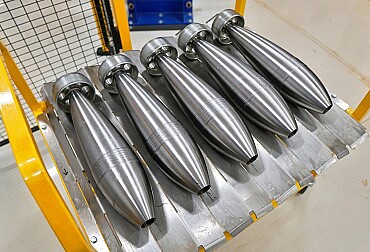Geopolitical turnaround in the Eastern Mediterranean: Cyprus abandons neutrality policy and joins NATO
Cypriot President Nikos Christodoulides has outlined a bold plan for joining the North Atlantic Alliance, which includes hosting a permanent U.S. force on the island. This development marks a departure from Nicosia's long-standing policy of neutrality, which dates back to the Cold War. The gradual rapprochement with NATO will almost certainly require the replacement of Russian and Soviet military equipment with Western systems. However, the biggest obstacle to Cyprus' entry is Turkey's opposition, as it militarily occupies the northern part of the island.

Cyprus remains the only European Union member that is neither part of NATO nor the Alliance's Partnership for Peace program. This is largely due to the unresolved division of the island. Since 1974, the northern part of Cyprus has been under Turkish military occupation, preventing reunification with Greece and supporting the interests of the Turkish Cypriot population (represented by the internationally unrecognized Turkish Republic of Northern Cyprus). Despite decades of intense negotiations and extensive international efforts, the island remains divided, with the United Nations peacekeeping force on Cyprus being the longest-serving in the organization's history.
Although the strategic importance of the Eastern Mediterranean diminished after the Cold War, recent events have reignited interest in the region. The civil war in Libya, Russia's support for the Assad regime in Syria, and the conflicts involving Hamas and Hezbollah have destabilized the area. Cyprus faces threats from organized crime, terrorism, human trafficking, and waves of refugees. The island's fragmented governance leaves weakly guarded areas vulnerable to exploitation, and security cooperation remains limited.
President Christodoulides acknowledges that Cyprus cannot immediately join NATO due to Ankara's objections. However, he emphasizes the importance of strengthening the Cypriot armed forces with U.S. assistance: "We don't want the armed forces to lose such an opportunity. We are negotiating with the U.S. on how the Republic of Cyprus can best use this window of opportunity, and we thank them for their positive response. When everything is in place, the Republic of Cyprus could become a NATO member state," he stated in November. He also stressed the importance of strengthening Cyprus' deterrence capabilities through enhanced cooperation with both the United States and NATO.
Cyprus’ geographic location underscores the need to modernize its military infrastructure. As the closest EU member state to the Middle East—just 182 km from Beirut—the island is negotiating with the U.S. to repair a major air base and with the EU to construct a new seaport. Paphos Airport in southwestern Cyprus already hosts a U.S. Marine presence and several V-22 Osprey transport aircraft, ready to assist with evacuations from nearby conflict zones.
Last year, the Cypriot government committed 2% of GDP to defense spending. This, combined with a pro-Western foreign policy orientation and the lifting of a decades-old U.S. arms embargo, signals major upcoming acquisitions for the Cypriot military. The embargo, imposed in 1987 to prevent an arms race, was lifted two years ago. The modernization process will likely involve replacing outdated Russian and Soviet-era weapons with Western alternatives.
Modernizing Cyprus' Armed Forces
Cyprus plans to focus future military investments on strengthening its defense capabilities in light of the unresolved territorial dispute. Key upgrades will include:
- Air Defense Systems: Advanced short- and medium-range missile systems and radar systems to enhance detection and surveillance. Cyprus is reportedly interested in Israel’s Iron Dome system.
- Naval Capabilities: Upgraded patrol boats and newer, more sophisticated vessels or unmanned systems to protect its exclusive economic zone and coastline.
- Ground Equipment: Replacement of aging main battle tanks, infantry fighting vehicles, and armored personnel carriers.
- Drones and Communication Systems: Expanding drone capabilities and improving intelligence gathering and analysis tools.
There is also speculation (according to Forbes) that Cyprus may acquire Dassault Mirage 2000 fighter aircraft from Greece, marking a potential milestone as the island has never owned combat aircraft.
Czech-Cypriot Defense Cooperation
Last May, the Czech Embassy in Cyprus hosted a meeting to explore Czech-Cypriot cooperation in defense and security. The event connected Czech companies such as Tatra Trucks, ERA, SVOS, and Excalibur Army with Cypriot officials, including Defense Minister Michalis Giorgallas and Chief of General Staff Dimokritos Zervakis. Prague aims to play a significant role in the transformation of Cyprus' military, with follow-up projects expected in the near future. Cyprus' potential NATO membership would further enhance opportunities for mutual collaboration.
Obstacles and Strategic Implications
Despite Nicosia’s ambitions, Turkey remains a significant obstacle to Cyprus’ NATO accession. Retired Turkish diplomat Ulutç Özülker emphasized Ankara’s veto power, comparing Cyprus’ candidacy to Sweden's contentious membership bid: "Turkey will not allow southern Cyprus to join NATO. It will act in the same way as when others tried to secure Sweden's membership without our consent."
Hassan Ünal, an advisor to the North Cypriot government, suggested that Turkey might condition its approval on international recognition of the Turkish Republic of Northern Cyprus. Aydin Selcen, a former Turkish diplomat, proposed a potential solution involving a bizonal federation in Cyprus, with two politically equal entities joining NATO as a single state. He also raised the possibility of U.S. concessions to Turkey in Syria or the Aegean Sea.
Turkey's opposition underscores its strategic influence within NATO, which it uses to pursue its geopolitical goals. Until the Cyprus issue is resolved, the island's development will remain restricted, and the broader security of the Eastern Mediterranean will continue to be at risk. However, NATO membership for a reunified Cyprus could offer security guarantees to both Greek and Turkish Cypriots under the Alliance’s collective defense umbrella. It could also enhance situational awareness in the region and open Cyprus' NATO bases to all member states, including Turkey.
Additionally, Cyprus' defense modernization programs would present attractive opportunities for Czech defense companies in the event of NATO accession.










